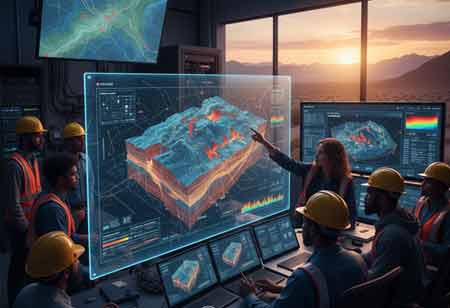THANK YOU FOR SUBSCRIBING
Navigating the Recent Trends in Data Center Construction Projects
In today’s business landscape, data centres have become a pivotal infrastructure, facilitating the efficient function of technologies like cloud computing and internet services.

By
Apac CIOOutlook | Wednesday, August 16, 2023
Stay ahead of the industry with exclusive feature stories on the top companies, expert insights and the latest news delivered straight to your inbox. Subscribe today.
Data centre construction is undergoing a profound transformation driven by technological advancements and the demand for sustainability. The latest trends are reshaping data centres into efficient, reliable and environmental-friendly facilities.
FREMONT, CA: In today’s business landscape, data centres have become a pivotal infrastructure, facilitating the efficient function of technologies like cloud computing and internet services. Demand for data storage and processing capabilities has accelerated substantial transformation within data centre construction, fostering technological advancement and sustainability objectives.
Data centre construction is undergoing a remarkable shift, characterised by increasing demand for sustainability. As the digital era continues to extend its influence, data centres become vital in modern technology, pinpointing the necessity of environmental impact assessment. This profound shift enables businesses to identify their data centre’s energy consumption, which frequently results in high carbon emissions and pressure on power grids.
The concept of green data centres rises as businesses across the world strive to minimise their ecological footprint. Leveraging renewable energy sources, automated cooling systems, and energy-efficient tools facilitates building an eco-friendly data centre. These facilities aid in achieving net-zero emissions and fostering social and environmental corporate responsibility. Embracing a circular economy by focusing on reusing and recycling components enable minimising electronic waste and extending the lifespan of tools, aiding in reducing operational costs and improving long-term resilience.
Another important transition is the adoption of modular data centres, characterised by re-fabricated modules, facilitating seamless assembly on-site. Unlike conventional construction methods, this approach offers swifter, adaptable and more economically viable solutions. From enabling quick deployment to expediting the introduction of critical data infrastructure to market, modular data centres offer inherent advantages. This addresses the urgency in the digital landscape and empowers enterprises to timely respond to dynamic technological requirements without undergoing considerable disruptions. Modular designs provide cost-effective solutions by reducing on-site labour, construction complexities and potential downtime, translating into enhanced return on investment (ROI). This strategy benefits enterprises in optimising resource allocation while efficiently scaling their digital infrastructure.
Integration of artificial intelligence (AI) and machine learning (ML) are making a notable trend in data centre management by optimising critical aspects of data centre functionalities. AI-driven applications enable dynamic regulation of power usage based on real-time demand patterns, minimising extensive energy consumption. Subsequently, automated cooling systems ensure effective temperature management by reducing overhead energy while upholding hardware integrity.
These technologies offer protection to data centres and safeguard them by identifying patterns and irregularities to detect potential threats, improving overall resilience. Leveraging AI capabilities facilitate early detection of equipment failures, enabling proactive intervention and reducing downtime. This collaborative approach between human expertise and technological innovation empower data centre operators with valuable insights, allowing timely responses to dynamic requirements.
The future of data centres promises unparallel possibilities in building a realm defined by AI-driven automation, energy efficiency and edge computing. With extensive growth, hyper-connected devices and dynamic technological advancements, data centres have become more resilient, sustainable and distributed, fostering a modern technological ecosystem.





